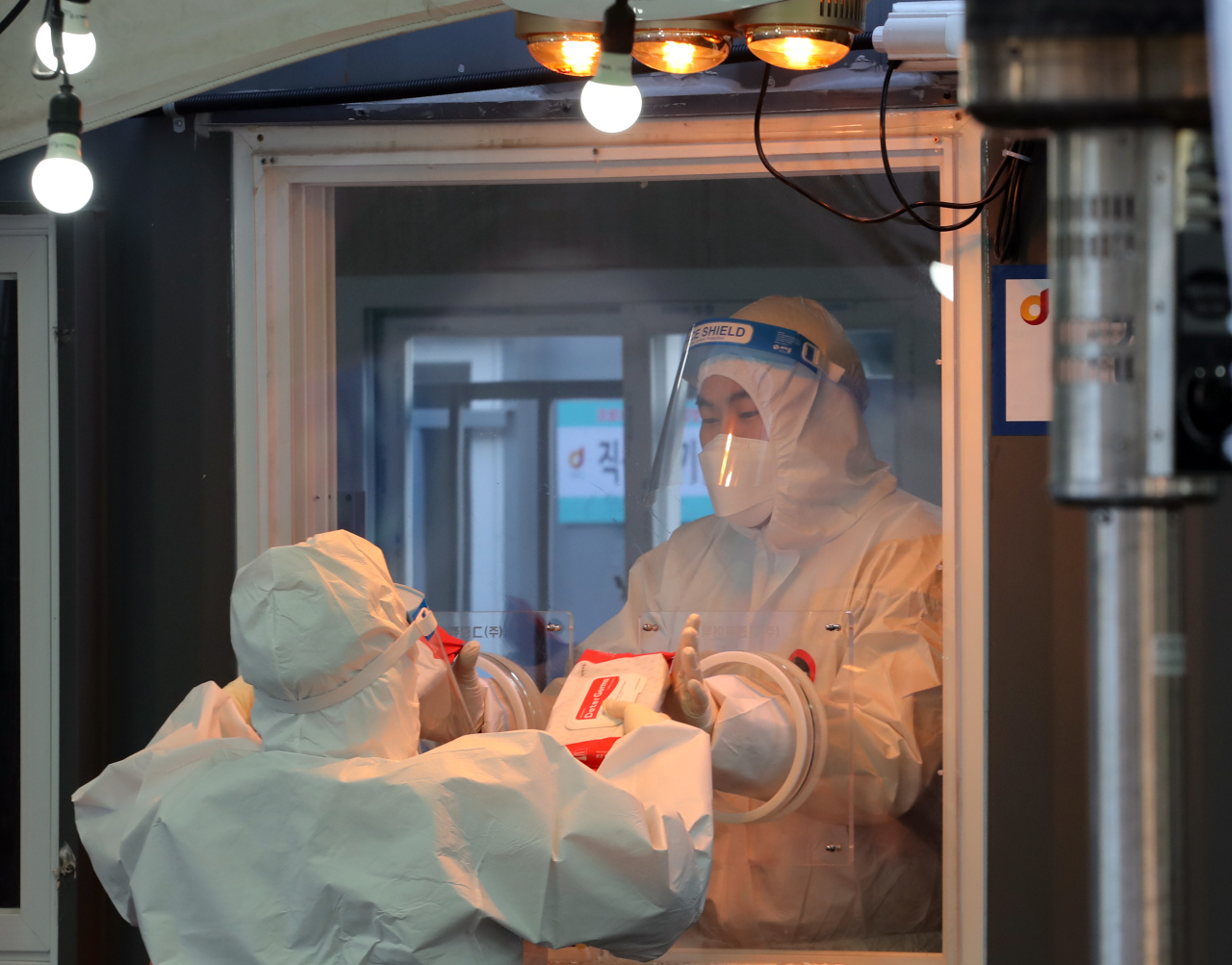COVID-19 could be ‘tamed by November,’ says KDCA deputy chief
Social distancing to be voluntary, rather than mandatory, from March
By Kim ArinPublished : Feb. 18, 2021 - 17:49

The COVID-19 pandemic in South Korea will be “sufficiently tamed by November, or possibly earlier,” Korea Disease Control and Prevention Agency Deputy Director Kwon Jun-wook said Thursday, referring to the vaccination timetable.
The deputy director said COVID-19 rates have fallen globally, largely due to the immunization efforts that are already underway in the US and many countries in Europe. He said that once vaccinations kick off in Korea, this country too can expect the situation to “stabilize substantially.”
“The Korean people have shown admirable commitment to containing the pandemic by adhering to social distancing and other safety steps, which still will be necessary for some time. Surely there could arise some hurdles along the way but in the big picture, we are on the path to overcoming this virus,” he said.
He also said that the homegrown treatments were on their way, with 151 vials of the recently approved monoclonal antibody therapy distributed at four hospitals on Wednesday.
Korea’s first doses of COVID-19 vaccines, which will be from AstraZeneca, will be administered starting Feb. 26, according to the latest announcement. But as the state regulator has cautioned against using the AstraZeneca vaccine for older age groups, nursing home residents and workers under 65 will be eligible for the jabs.
Virologist Dr. Paik Soon-young of Catholic University of Korea says there are still “too many uncertainties at play” with the vaccines, calling the deputy director’s projection “rosy.”
“So far the supplies that are scheduled to arrive in the first half of the year are AstraZeneca’s, which means that older people won’t be able to be vaccinated until summer -- unless the results from the US study offer enough evidence to change the official recommendation,” he said.
Infectious disease specialist Dr. Kim Woo-joo said the vaccine deliveries being delayed were “turning out to be a problem everywhere,” he said. “The prime minister (Chung Sye-kyun) had said the Pfizer vaccine would arrive in early February. Now he says it’s been pushed to March.”
Another big risk was the less controllable variant of COVID-19 becoming the dominant strain locally. “If the South Africa variant starts dominating local transmissions, it could reduce the efficacy of the vaccines and antibody treatments considerably,” he said.
Over the last three days, Korea analyzed 46 samples from patients and found five more cases caused by the new variants on Wednesday, with the count now reaching 99. All of the five cases were close contacts of people who had attended a Syrian family gathering involving around 40 people.
The number of new cases surpassed 600 for the second day in a row Thursday, after about three weeks of new daily case numbers between 300 and 500. On Thursday Korea announced 621 more cases of COVID-19 -- 590 locally transmitted and 31 imported -- confirmed the previous day, according to the KDCA updates. The cumulative total stands at 85,567.
According to preventive medicine specialist Dr. Jung Jae-hun’s Jan. 28 model predicting the potential spread of COVID-19, another spike in cases could occur between March and April. He said in Wednesday’s update that the recent trajectory was getting worse than he had forecast three weeks ago.
Another Feb. 10 model by the National Mathematical Sciences and other researchers at Pohang University of Science and Technology estimates the daily case count climbing past 750 in three weeks if mitigation measures are relaxed.
Kwon of the KDCA also urged continued caution, warning that Korea may face a “substantial surge in infections” as colder temperatures continue and social distancing is eased.
“All of us at the agency greatly appreciate your taking part in the efforts to control the outbreaks. As we head toward a next phase in the pandemic, we ask once again for your patience and practice social distancing,” he said.
From Monday, the curfew for potential high-risk businesses has been moved from 9 p.m. to 10 p.m. in the capital area, and closure orders on hostess bars and similar places have been removed. For the rest of the country outside the capital, normal operations are permitted for all businesses. The ban on private gatherings of five people or more is still effective nationwide.
Meanwhile, the Ministry of Health and Welfare told a virtual news conference Thursday that it was mulling major changes to the country’s pandemic strategy.
Citing improved health care system capacity over the year, the ministry said it would consider implementing social distancing rules more leniently so that businesses and other public venues can stay open. Instead, there will be toughened penalties for individual noncompliance with precautions, the ministry said.
This echoes President Moon Jae-in’s remarks three days earlier. The president said during Monday’s Cheong Wa Dae chief of staff meeting that starting next month, Korea would move on to a voluntary, rather than mandatory scheme of social distancing that “minimizes restrictions on gatherings and business activities, while at the same time punishes more strictly violations of precautions and other risky behaviors.”
By Kim Arin (arin@heraldcorp.com)


















![[KH Explains] Hyundai's full hybrid edge to pay off amid slow transition to pure EVs](http://res.heraldm.com/phpwas/restmb_idxmake.php?idx=652&simg=/content/image/2024/04/18/20240418050645_0.jpg&u=20240418181020)

![[Today’s K-pop] Zico drops snippet of collaboration with Jennie](http://res.heraldm.com/phpwas/restmb_idxmake.php?idx=642&simg=/content/image/2024/04/18/20240418050702_0.jpg&u=)